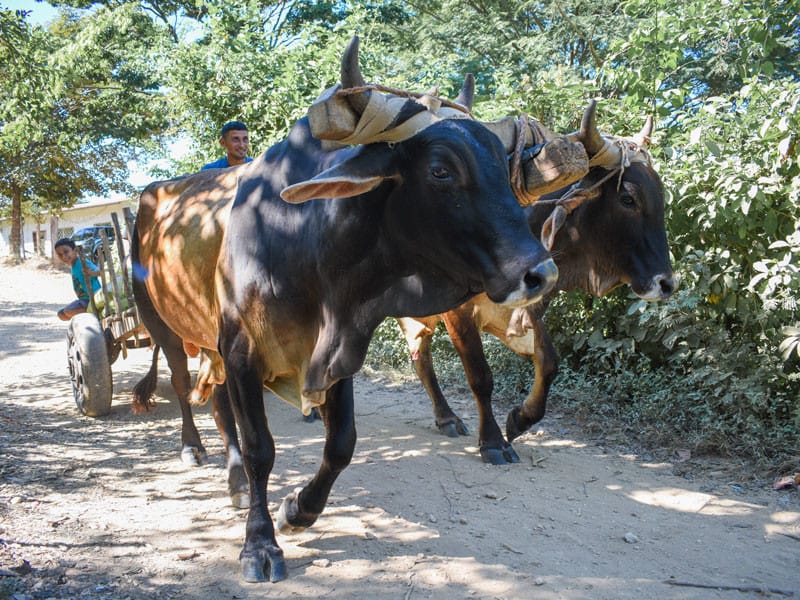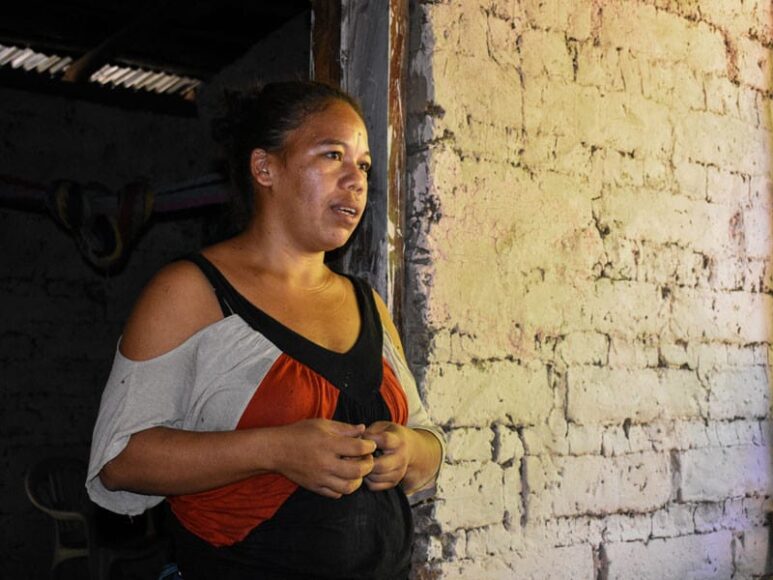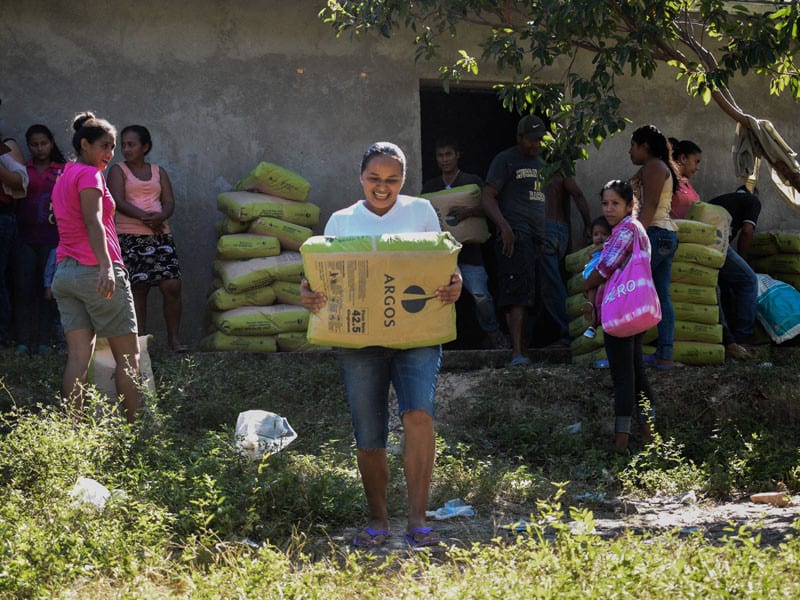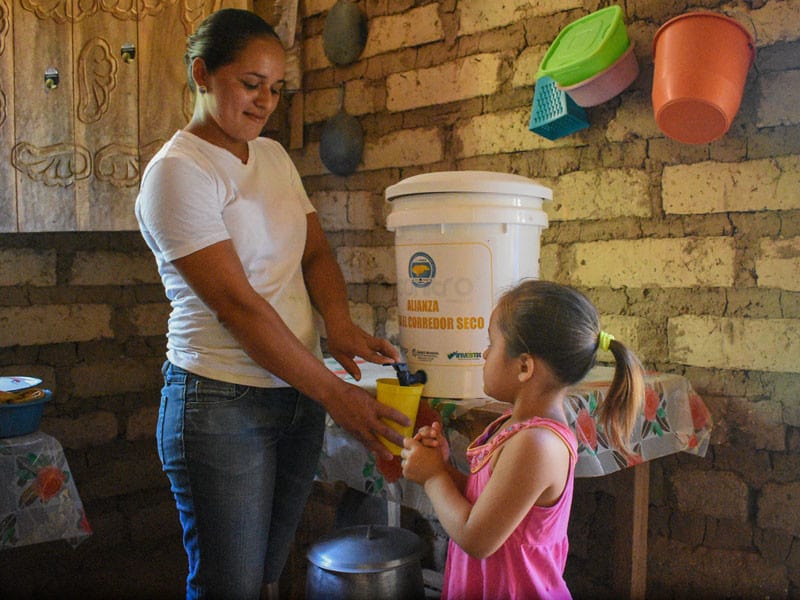Chagüitón, HondurasIn a flurry of activity along the street of this small rural community, men and women are working together to load bags of cement. Tired but laughing, they drop the nearly 100-pound bags into a cart pulled by oxen, which is blocking the entire road.
In the middle of the bustle is Petronila Cárcamo, a mom of two and a community leader in Chagüitón. Le 10 à 15 bags of the cement she’s helping haul will be used in her own home to cover the existing dirt floor that poses health hazards to her family.

“I’ve been out of the house so much lately," dit-elle. “This week I was nowhere to be found, because I’ve been bringing all the cement.”
Cárcamo and others in the community are pitching in to make improvements to 25 households in Chagüitón. They are supported by the Dry Corridor Alliance – PROSASUR project, which provided the cement and other construction materials that will be used, including wood, aluminum, PVC piping and tools, entre autres. The project will also supervise building and supply professional contractors to lead the work.
Ninoska Bulnes, Nutrition and Household Hygiene Coordinator for PROSASUR, says a simple thing like a cement floor can make a big difference in a household’s health.
“Families can count on a healthier floor that will help them prevent the spread of parasites that are introduced through the skin. Parasite-borne illnesses are common in children under 5 ans," dit-elle. “The cement floors will be installed where the children are, sometimes in the living room, and in the kitchen where food is prepared to improve food safety.”

In addition to her new floor, Cárcamo, who was previously elected by her neighbors to oversee the nutrition monitoring of children in her community, received an updated stove that will reduce by 60 percent the amount of firewood used and minimize smoke inhalation.
“I am grateful for PROSASUR, because today I feel happy," dit-elle. “I have an improved cook stove and soon I’ll have my new floor.”
Communities come together to improve health
Across the Dry Corridor of Southern Honduras, PROSASUR is working to improve agriculture production, raise farmers’ incomes and improve health and nutrition.
The program is implemented by Creative Associates International in partnership with INVESTIR-Honduras, one of two program clusters. It’s funded by the World Bank through the Programme mondial pour l'agriculture et la sécurité alimentaire.
PROSASUR is assisting 2,000 households to undertake health-focused improvements, y compris 800 sanitation projects. More than half of the construction and installation will take place this year, with the remaining projects completed over the following two years.

The projects, carried out in collaboration with residents, are one piece of a larger effort to improve health and reduce chronic childhood malnutrition in the region. Health risks from parasites, smoke, and poor water and food sanitation often cause sickness like diarrhea and pneumonia that can stunt children’s development and prevent them from achieving healthy growth.
PROSASUR is supporting the installation of new floors, stoves, water filters and latrines to combat these issues. The program is investing from $500 à $700 in each home and requires the households and communities to contribute local materials such as sand, rocks, water and labor.
Chief of Party Carlos Ruiz says the communities are rallying around the projects and the goal of improving health.
“We have been heartened to see neighbors helping one another, lending their time and energy to bring these home improvement projects to fruition," dit-il. “Even more importantly, communities are excited about these changes and the impact they will have. The projects are an important step in raising awareness about health in the region.
Bulnes says that she expects to see a noticeable decline in common health problems once the projects are complete and families begin using the new technologies.

“We are confident that with these projects, there will be fewer cases of diarrhea and anemia associated with malnutrition, both with the children that live in the home and other members of the family," dit-elle. “The prevalence of both these illnesses in the Dry Corridor is 16 ou 17 percent higher than the national average.”
Karen Cruz, who has a son and daughter ages 2 et 4, will have all four improvements on her home in Chagüitón, marking a huge change in her family’s living conditions. She has already constructed the new stove with brick and other material provided by PROSASUR and contributions from her community.
“With the cement floor in my kitchen and maybe part of my living room, my family will be much healthier, especially my kids," dit-elle. “I feel satisfied with what PROSASUR has given me. With the old stove, I was breathing in smoke, but not with the improved one. My children will be well.”
With editing by Evelyn Rupert and Carlos Ruiz.